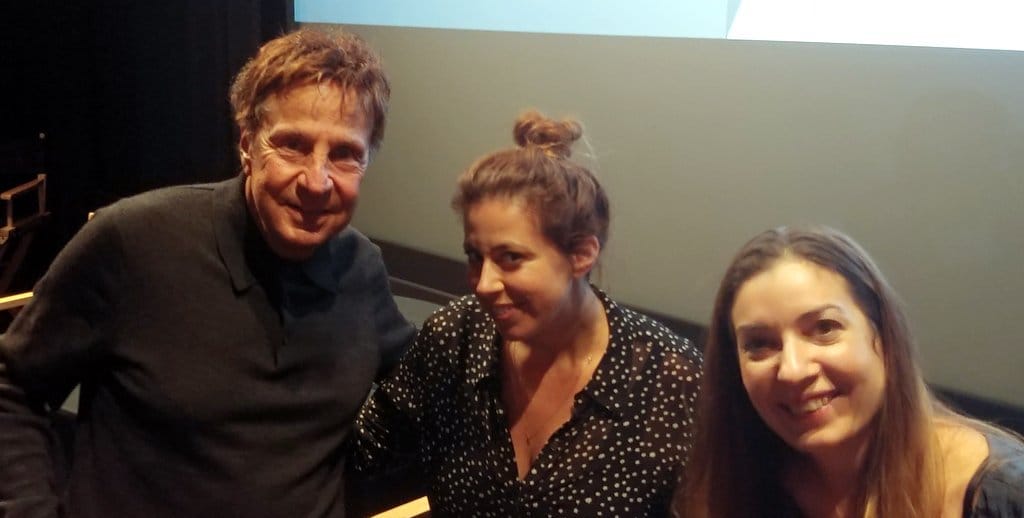Last month, 40 students flew to Los Angeles for a week as part of the Wharton Industry Exploration Program (WIEP) to learn about and experience the entertainment industry. I was able to participate with them in the Student Alumni Networking mixer and joined them for a day on the Paramount lot.
At the Sherry Lansing Theater at Paramount Studio, Doug Belgrad C87 gave the WIEP group a mini-course on film production. He explained how the film-studio pipeline works, from development (acquisition into screenplay), packaging (talent, director), green light, production, and marketing. Belgrad shared stories and insights from more than a decade as head of production at Columbia and Sony Pictures and from his new company, 2.0 Entertainment. He explained that with the seemingly unlimited forms of entertainment available to audiences today, the biggest challenge for all media is this: How do you grab and keep the audience’s attention?
Belgrad then moderated a panel of industry experts which consisted of Sara Scott C00 from Universal Pictures, Mike Karz C89 W89 of Karz Entertainment, Jordana Mollick from Black Sheep Entertainment, and Robert Cort C68 G70 WG74 of Robert Cort Productions, who just produced his 57th movie. The panelists shared their winding journeys to success and the alumni speakers mentioned how being part of the Wharton and Penn network has helped them in their circuitous routes. Karz remarked, “I owe a lot of where I am today to Penn,” explaining how connections at networking events led to a series of jobs and the start to his career.

From left to right: Robert Cort C68 G70 WG74, Jordana Mollick, and Sara Scott C00, panelists at a Wharton Industry Exploration Program panel. (Photo: Lisa Niver)
Scott’s journey began in Philadelphia in casting. Like several of the others, she spoke about how her early jobs were not glamorous. When a fellow alum encouraged her to take an entry-level position, she replied, “I went to Penn and I am going to answer phones and be someone’s assistant.” The friend responded, “What do you think I am doing?” Being willing to start with those jobs led to an incredible future and she is now vice president of production development at Universal Pictures.
Cort emphasized that there is no straight path to success in this industry. Many parents are worried about their children entering Hollywood, as there’s no clear path to success. However, after 35 years, Cort continues to love his job producing movies.
It was clear from each speaker that they love what they do and each path was very individual, but mentors and networks made the journey possible. Belgrad said, “My joy is building relationships with creative and brilliant people. You need EQ to be in this field.”
I was surprised when Karz spoke about how long it takes to make a movie. “It is basically a miracle when a movie gets made,” he said. “‘Valentine’s Day’ was a nine year process.” He was working on the movie with New Line Cinema and they went out of business. Then he worked with MGM Studios and they went out of business. He had Gary Marshall as the director and then New Line was back in business at Warner Brothers. At this point, Marshall was able to get Julia Roberts involved and the movie was finally made. “It was not easy but when great things happen like having the biggest opening weekend, it is gratifying,” Karz said. Cort agreed and added, “It took nine years to make ‘Runaway Bride.’”
The speakers also discussed which movies get nominated for Oscars, the impact of globalization on movies internationally, and studios being owned by giant corporations. They shared about how much money it takes to get a film from story idea to movie theater and the changes to their jobs with streaming and future technologies. That said, Cort explained, “Currently there is more opportunity in the TV world and it is more orderly.” Belgrad agreed that television is a booming business. “It is a golden age for content and you can go back and forth between movies and TV. Chase down great stories and then find them a place to live.”
In his closing remarks, Belgrad reminded the students that, “One of the biggest risks is not taking chances. You need to create something that breaks through the clutter and brings audiences what they want. Prudent risk-taking is incredibly important. The audience wants something fresh and different.”

























